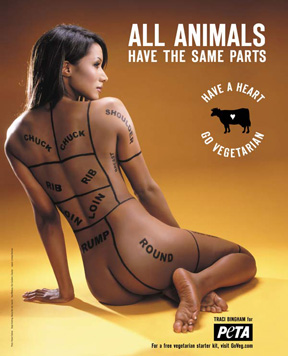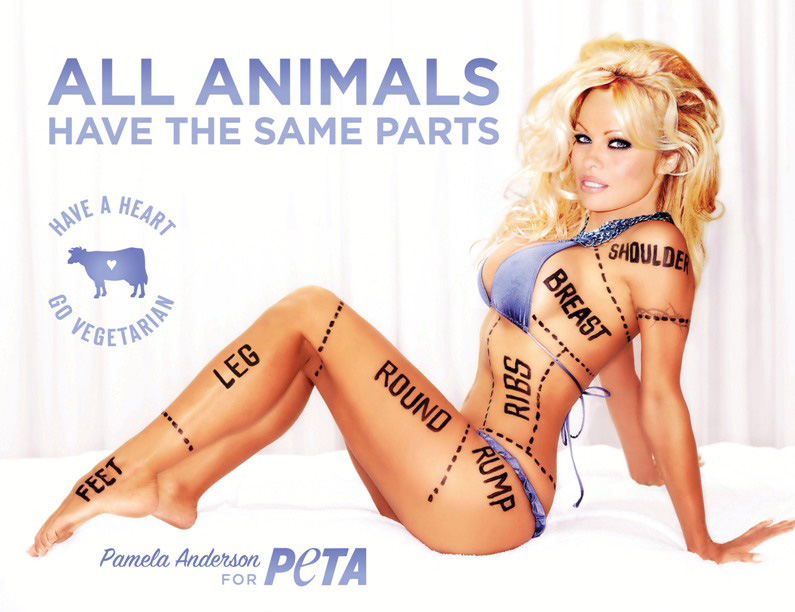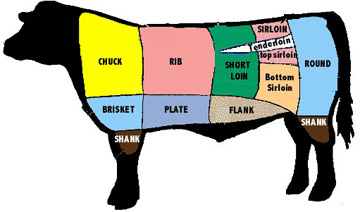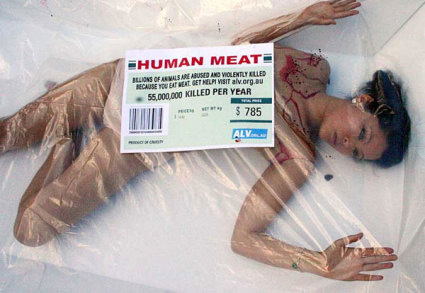 |  |  |
| This campaign
could be decoded as being much more progressive than other PETA
campaigns but there is no indication that this was PETA's intent upon
the encoding/production of the ads. The image of Pamela Anderson in a
swimsuit and diagramed into pieces of meat is supposed to allude to a
cultural knowledge that they expect the view to have, at some point,
seen a image of a cow like the one picture above, divided up in to
different parts of beef with dotted lines. The goal of the ad in
relation to animal rights is anchored by the title that reminds
viewers, "all animals have the same parts" but we don't call Pamela
Anderson's butt a rump or her thighs, rounds. Whether intentional or not, the ad can also be read as a self-critique of PETA's own ads that objectify women and present them as a piece of meat. If the diagram parts were missing, this image of Pamela Anderson posed in a bikini and displaying her body would have much greater polysemy. It could be an anti-fur ad or could say "I'm Pamela Anderson and I'm a vegetarian" as another line of ads that features celebrities declares that they are vegetarian or vegan. The point is, Pamela Anderson's pose is quite typical of a PETA ad, which some viewers could encode as PETA poking fun at themselves and their controversial ads. |  |
 |  |